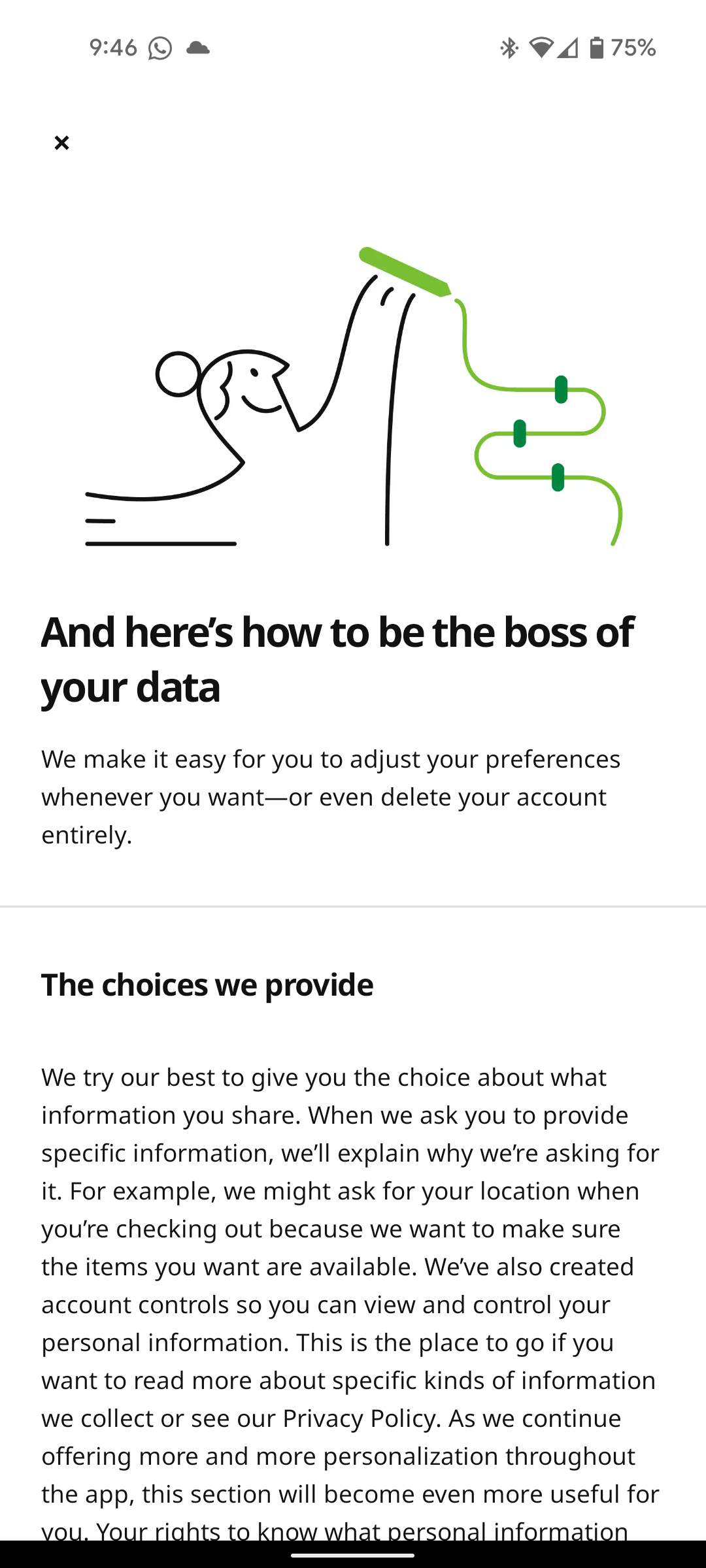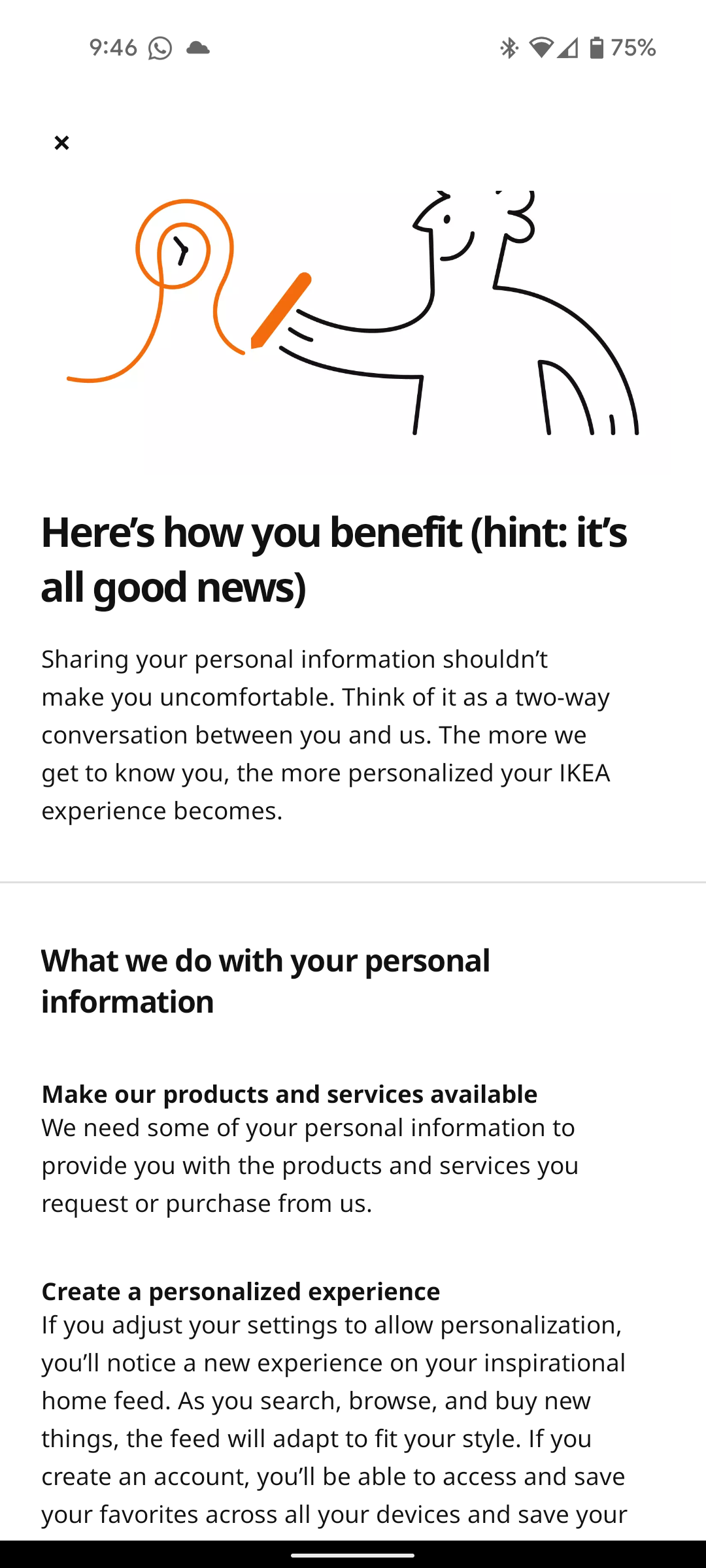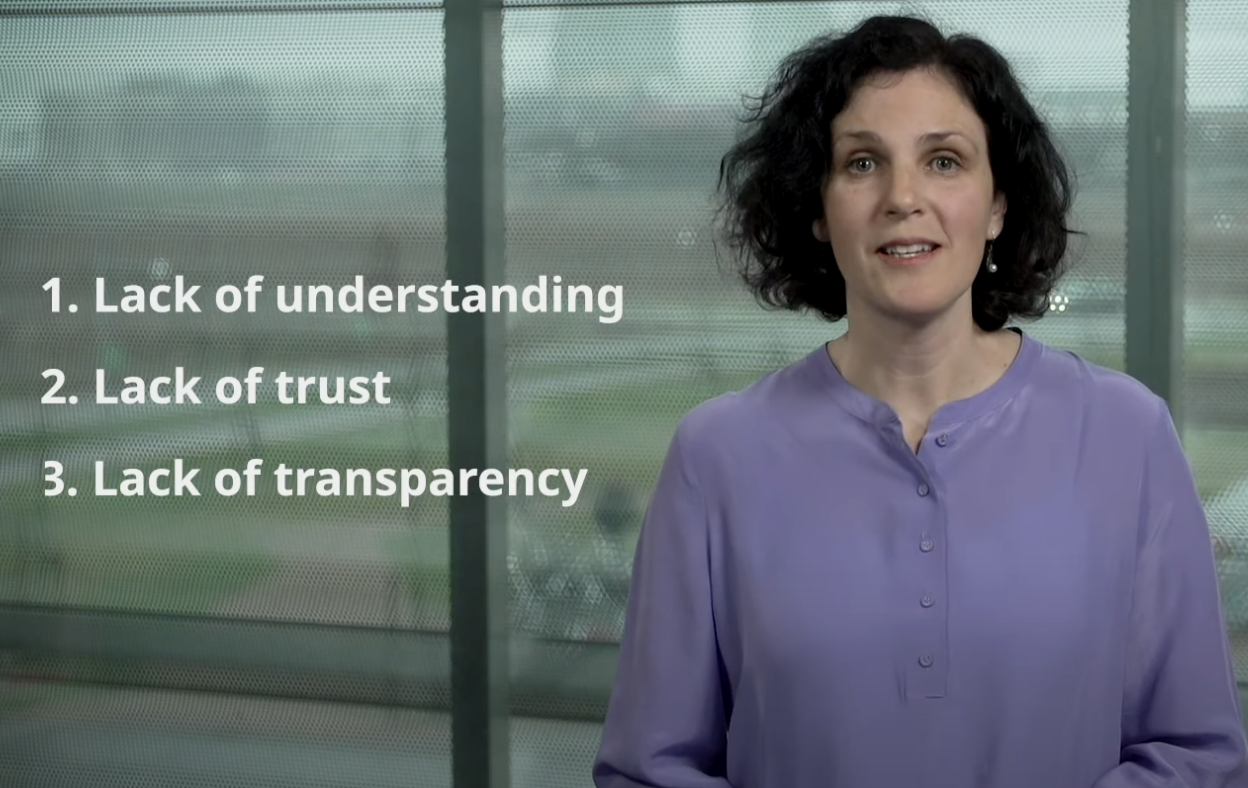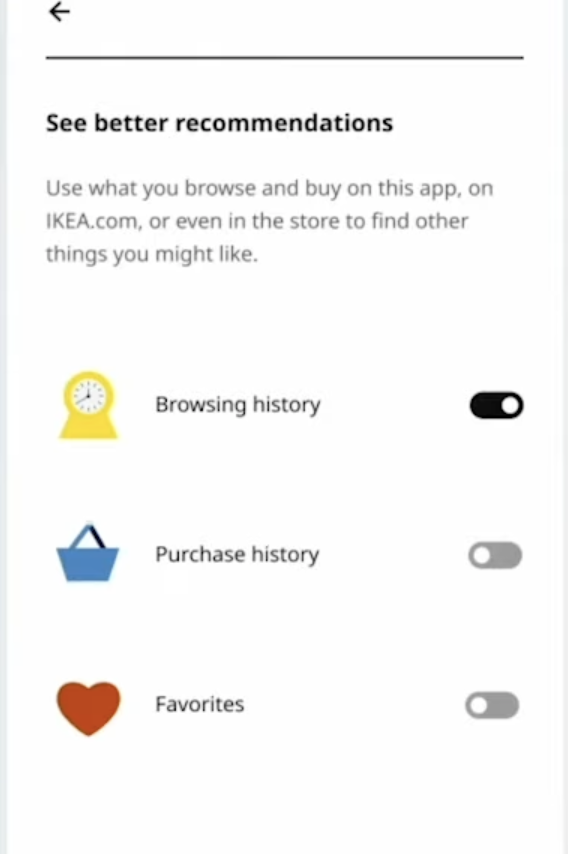I have been watching this IKEA video for a while and it’s just amazing. I wasn’t even looking for furniture a week ago, but I downloaded the app and now I am buying shelves and chairs because it’s just such a well designed and executed experience.
Let’s start with the video of my new hero, Barbara Martin Coppola, the Chief Digital Officer of the Ingka Group (the largest franchisor of IKEA).
“It’s time to have a win-win relationship for people and companies around their own data”
I couldn’t agree more. We are currently being stretched between the desire for personalization, and the need for privacy. Today, it’s a lose-lose. People lose privacy, and except in a few cases, they don’t get great personalization. The reason is that there is a barrier between companies and customers today – and that is because almost everyone is still caught in the “privacy-last” era.
The privacy-last era was one in which brands treated customer data as if it was their own; they tracked everything you do, they bought and sold your data without your knowledge or permission, and they used it however they wanted. Supporting all this was a lot of legalese designed to protect them should any person have an especially bad reaction to this treatment.
Privacy-first will “give control back to the people.”
At Wyng, we see an opportunity to flip this thinking entirely. Instead of building walls to defend the way you use data, why not just change the way you use data to think about privacy as the first principle, instead of the last? Today, privacy-last has three main consequences that create lots of negative interaction with brands, and chiefly a loss of trust.
This leads to confusion and lack of trust which leads to bad business outcomes; churn, low engagement, high costs of acquisition, and decreased profitability. Not to mention, nobody likes working for companies that treat their customers this way.
The three tenets of privacy-first are the exact opposite of this:
- Transparency: People deserve to see how their data is being used and should gain immediate benefit from it.
- Choice: People should be able to decide when and how they participate and give their data to a brand.
- Control: After giving data to a brand, people should have control over how it is used, stored, and viewed.
“We will completely change the way we collect, manage and view data”
Changing to the Privacy-First era of marketing means changing everything you do with data – and rethinking it from a perspective of “what would a customer want?” Now lets dig in to specifically what we see from IKEA! They are designing from a people-centric approach.
First of all, they made their data policy very transparent. The simplified their multi-page privacy policy down into 4 simple principles that each are explained in a paragraph:
- What we collect and why
- How it benefits you
- How your data stays safe
- How to be the boss of your data


It’s a fantastic user experience.
Next, they give customers lots of choice, transparency, and control in their experiences.
- Choice: They support private browsing in general or at any time. They collect data about your preferences transparently via obvious interactions – more on that below.
- Transparency: They give customers options to favorite or like items to drive personalization – and they show you how that works when you “pull up the curtain.” They showcase the way they use your data, and they show you immediately what it is like when you choose to take advantage of their personalization capabilities.
- Control: Customers have many options at any time to change what data IKEA has about them, when it expires, and if it needs to change. This is not only the legal requirement in some places, it is the most ethical way to store a users data.
Two Highlights: Contextual Preferences and Personalization Toggles
One simple and elegant tactic they have is what we call “contextual preferences,” or asking people if they like certain attributes and would like them to apply to future recommendations. In this case, they are asking customers about sustainability. This is a brilliant form of zero-party data because it is fast, easy, and provides immediate benefit to the shopper.
Of course, like any other setting in the app, you can toggle this at any time. Which brings me to my next favorite thing – toggling privacy. It’s a funny word, but seriously good design practice in this case. There are multiple layers of privacy setting available, and that is no mean feat on the back end when you have millions of customers around the world and millions of product SKUs that each have dozens of attributes to drive personalization. The intricacies of this engineering probably make a Swiss Watch look primitive. Kudos to the IKEA engineering teams.
So the first layer is total tracking-free mode. Some people know it as Incognito or Private browsing, depending on your browser of choice.
The next layer is personalized results. This may seem the same, but it basically is allowing them to use contextual data to make recommendations without using your specific preferences or favorites that you have given in the past. I am not personally a fan of this setting, as it relies entirely on what they can observe about you in the moment to infer what products you might want to look at next – instead of just using the preferences (zero-party data) that you have given them.
Respecting People’s Data: Good Business and the Right Thing to Do
If you reacted like I did to this video, then there is good news. IKEA is not the only company thinking this way. The success of personalization at brands like Netflix, Amazon, Stitch Fix, and others has many brands rethinking their approach to data. On top of that, data privacy concerns are escalating as law enforcement organizations increased their fines 6x in the last year. Soon, the majority of the world will be covered by some form of digital privacy legislation, up from just 10% 3 years ago. Not only is it smart business to personalize in a privacy-first way, it’s what is expected! 76% of consumers get frustrated when they don’t relieve some kind of personalized experience.
The work that IKEA is doing is not easy, but I would argue that it is the most important thing they can do to grow their business.










